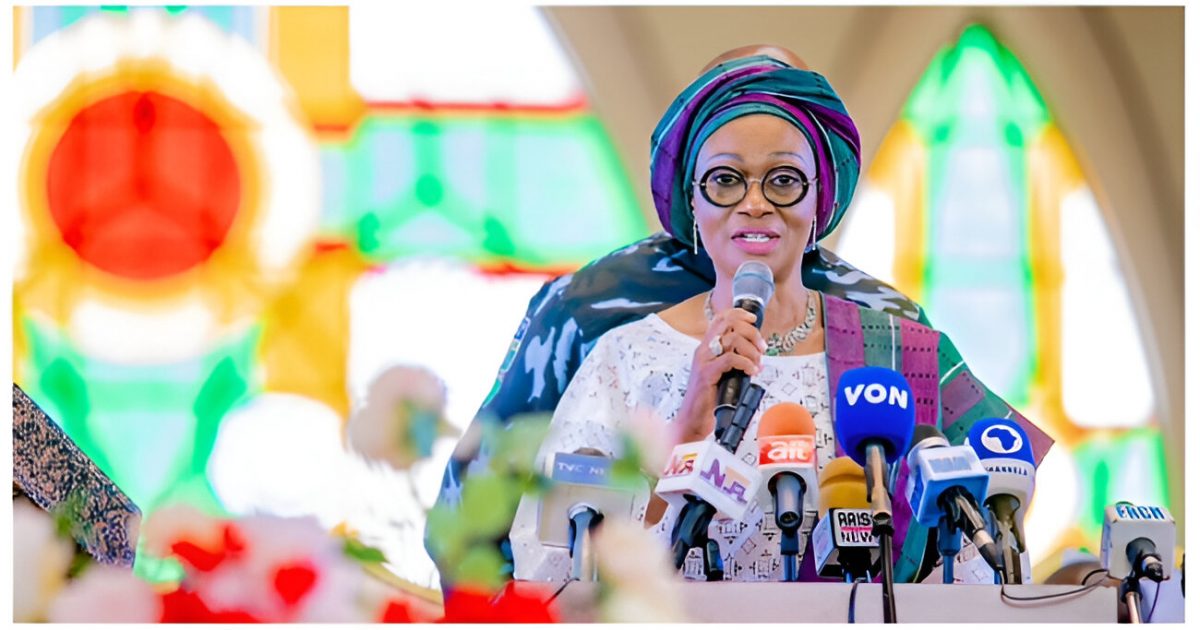The assertion that families thrive better when fathers are actively involved, attributed to Nigeria’s First Lady, Oluremi Tinubu, underscores a critical perspective on family dynamics and societal well-being. This statement aligns with her consistent advocacy for strong family units as a foundation for national development. Through her Renewed Hope Initiative (RHI), she has championed programs that promote social cohesion, education, and economic empowerment, often emphasizing the roles of both parents in nurturing stable households.
Active fatherhood is widely recognized as a cornerstone of family stability, with empirical evidence highlighting its benefits across emotional, social, and economic dimensions. Studies, such as those from the National Fatherhood Initiative, indicate that children with involved fathers are 40% less likely to repeat a grade in school and exhibit higher self-esteem. Fathers who engage in daily activities—such as reading, playing, or providing emotional support—foster environments where children develop resilience and cognitive skills, contributing to long-term family harmony.
Economically, fathers’ involvement often translates to improved financial stability, as dual-parental engagement typically correlates with better resource management and reduced poverty risks. A 2020 World Bank report noted that households with active paternal participation in decision-making tend to allocate more resources to children’s education and health, enhancing family outcomes. In Nigeria, where economic challenges persist, such involvement can mitigate stressors, reinforcing the family as a unit of mutual support.
Socially, fathers play a unique role in modeling behaviors and values, particularly for young boys and girls navigating gender roles and societal expectations. Research from the American Psychological Association shows that fathers’ presence reduces delinquency rates among adolescents by up to 30%, as they provide discipline and mentorship. Mrs. Tinubu’s broader advocacy, including her focus on youth empowerment through RHI, suggests an understanding of how paternal guidance can steer families toward positive societal contributions.
In the Nigerian context, cultural norms often place significant responsibilities on fathers as providers and protectors, yet modern challenges like unemployment and migration can strain these roles. Programs like RHI, which include economic support for families, indirectly bolster fathers’ capacity to fulfill these duties, aligning with the sentiment of the attributed statement. By addressing systemic barriers, such initiatives enable fathers to remain engaged, fostering stronger family bonds.
Critics might argue that emphasizing fatherhood risks overlooking the vital contributions of mothers or single-parent households, particularly in Nigeria, where many women lead families resiliently. However, the statement does not diminish these roles but highlights the complementary impact of fathers when present. A balanced family dynamic, where both parents are involved, often yields the best outcomes, as evidenced by global studies on child welfare.
Public discourse on platforms like X reflects mixed reactions to such statements, with some users praising the focus on family values and others calling for broader systemic reforms to support fathers. For instance, posts analyzed from X in 2025 suggest that Nigerians value paternal involvement but seek policies addressing job creation and mental health to sustain it. These conversations underscore the need for holistic approaches to family support, a theme consistent with Mrs. Tinubu’s public engagements.
Mrs. Tinubu’s broader work through RHI, including support for women, youth, and vulnerable groups, complements the idea that engaged fathers enhance family thriving. Her initiatives, such as agricultural training and scholarships, empower families holistically, creating environments where fathers can actively participate. This synergy between policy and advocacy reinforces the statement’s underlying message.
Globally, the importance of fatherly involvement is echoed in campaigns like the U.N.’s MenCare initiative, which promotes equitable parenting to improve family outcomes. In Nigeria, where patriarchal structures still influence family roles, encouraging fathers to embrace nurturing responsibilities can shift cultural norms toward more balanced dynamics. This evolution aligns with Mrs. Tinubu’s vision of a cohesive society built on strong families.




